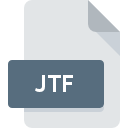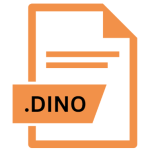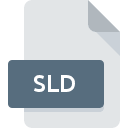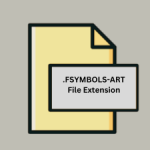.JTF File Extension

JPEG Tagged Interchange Format
| Developer | Update Soon |
| Popularity | |
| Category | Raster Image Files |
| Format | .JTF |
| Cross Platform | Update Soon |
What is an JTF file?
JPEG Tagged Interchange Format (.JTF) files are utilized to embed additional metadata and tags within JPEG images.
This extension enhances the basic JPEG format by allowing for structured metadata storage, facilitating better organization and retrieval of information associated with the image.
More Information.
Initially, .JTF files were created to provide a standardized way to store and exchange rich metadata associated with JPEG images.
This was particularly useful in fields such as digital photography, document management systems, and archival processes where detailed information about images needed to be preserved and accessed.
Origin Of This File.
The .JTF format was developed to address limitations in the standard JPEG format, which lacks robust support for metadata beyond basic EXIF data.
Introduced as a solution for applications requiring extensive metadata, it enables the inclusion of tags and annotations directly within the JPEG file.
File Structure Technical Specification.
.JTF files maintain the basic structure of JPEG images but include additional segments for storing tags and metadata. The technical specifications typically include:
- JPEG Compatibility: .JTF files are fully compatible with standard JPEG decoders.
- Tag Structure: Tags are stored in specific segments within the file, using a structured format to ensure compatibility and accessibility across different applications.
- Metadata Types: Common metadata types include descriptive tags, copyright information, geolocation data, and annotations.
How to Convert the File?
Converting .JTF files to other formats or vice versa typically involve specialized software designed to handle JPEG metadata. Here are the general steps for conversion:
- Using Conversion Tools: Utilize software tools capable of converting .JTF files to standard JPEG or other compatible formats.
- Preserving Metadata: Ensure that during conversion, embedded metadata and tags are retained and correctly translated to the new format.
- Batch Processing: Some tools support batch conversion, allowing for efficient handling of multiple .JTF files.
Advantages And Disadvantages.
Advantages:
- Enhanced Metadata: Allows for comprehensive metadata storage beyond EXIF data.
- Interoperability: Compatible with existing JPEG standards, ensuring broad application support.
- Information Accessibility: Facilitates easy access to embedded information, enhancing image management workflows.
Disadvantages:
- File Size: The addition of metadata can increase file size compared to standard JPEG images.
- Compatibility Issues: Some older software may not fully support .JTF files or interpret embedded metadata correctly.
- Complexity: Managing and editing embedded tags requires specialized software, which may not be readily available.
How to Open JTF?
Open In Windows
- .JTF files can be opened using popular image viewers and editors such as Adobe Photoshop, Microsoft Photos, or IrfanView.
Open In Linux
- Applications like GIMP, ImageMagick, and the built-in image viewer support .JTF files on Linux distributions, providing full access to embedded metadata.
Open In MAC
- Preview, Adobe Photoshop, and other third-party applications like Pixelmator support opening and editing .JTF files on macOS.













